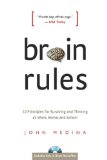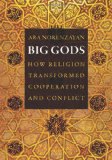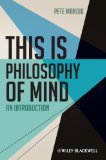August 27, 2013

The Secret World of Sleep: The Surprising Science of the Mind at Rest by Penelope A. Lewis (Palgrave Macmillan, 2013)
(kindle ed.), (amazon.co.uk)
Book description from the publisher:
In recent years neuroscientists have uncovered the countless ways our brain trips us up in day-to-day life, from its propensity toward irrational thought to how our intuitions deceive us. The latest research on sleep, however, points in the opposite direction. Where old wives tales have long advised to “sleep on a problem,” today scientists are discovering the truth behind these folk sayings, and how the busy brain radically improves our minds through sleep and dreams. In The Secret World of Sleep, neuroscientist Penny Lewis explores the latest research into the nighttime brain to understand the real benefits of sleep. She shows how, while our body rests, the brain practices tasks it learned during the day, replays traumatic events to mollify them, and forges connections between distant concepts. By understanding the roles that the nocturnal brain plays in our waking life, we can improve the relationship between the two, and even boost creativity and become smarter. This is a fascinating exploration of one of the most surprising corners of neuroscience that shows how science may be able to harness the power of sleep to improve learning, health, and more.
Google Books preview:
See also: Author interview on NPR
Comments (0)
- mind,new books
August 24, 2013
Today’s Kindle Daily Deal features over 65 titles for $2.99 or less, including:

Brain Rules: 12 Principles for Surviving and Thriving at Work, Home, and School by John Medina for $1.99.
Infinite Jest by David Foster Wallace for $1.99.

(Note: “Individual titles may have additional territory restrictions, and not all deals are available in all territories.”)
Comments (0)
- Uncategorized

Big Gods: How Religion Transformed Cooperation and Conflict by Ara Norenzayan (Princeton University Press, 2013)
(kindle ed.), (amazon.co.uk)
Book description from the publisher:
How did human societies scale up from small, tight-knit groups of hunter-gatherers to the large, anonymous, cooperative societies of today–even though anonymity is the enemy of cooperation? How did organized religions with “Big Gods”–the great monotheistic and polytheistic faiths–spread to colonize most minds in the world? In Big Gods, Ara Norenzayan makes the surprising and provocative argument that these fundamental puzzles about the origins of civilization are one and the same, and answer each other.
Once human minds could conceive of supernatural beings, Norenzayan argues, the stage was set for rapid cultural and historical changes that eventually led to large societies with Big Gods–powerful, omniscient, interventionist deities concerned with regulating the moral behavior of humans. How? As the saying goes, “watched people are nice people.” It follows that people play nice when they think Big Gods are watching them, even when no one else is. Yet at the same time that sincere faith in Big Gods unleashed unprecedented cooperation within ever-expanding groups, it also introduced a new source of potential conflict between competing groups.
In some parts of the world, such as northern Europe, secular institutions have precipitated religion’s decline by usurping its community-building functions. These societies with atheist majorities–some of the most cooperative, peaceful, and prosperous in the world–climbed religion’s ladder, and then kicked it away. So while Big Gods answers fundamental questions about the origins and spread of world religions, it also helps us understand another, more recent social transition–the rise of cooperative societies without belief in gods.
Google Books preview:
See also: Author’s website
Comments (0)
- culture,human evolution,new books
August 21, 2013

This is Philosophy of Mind by Pete Mandik (Wiley-Blackwell, 2013)
(kindle ed.), (amazon.co.uk)
Book description from the publisher (from back cover):
The nature of the human mind and its relationship with the body and the outside world has long been a central concern of western philosophy, and the last few decades have seen great strides on explanations of consciousness, brain function, explications of the nature of perception and emotion, and many other issues. This is Philosophy of Mind presents a lively and accessible introduction to our current understanding of the core issues related to the philosophy of mind, including the mind-body conundrum, artificial intelligence, the nature of consciousness, and many more. While several chapters focus on the traditional positions on the mind-body problem, others offer insights on such contemporary topics as the problems of mental causation and free will, as well as theories of consciousness and intentionality. Specifically written for students of philosophy without a great deal of background, This is Philosophy of Mind helps to unravel some of the deep mysteries surrounding the nature of the human mind.
Google Books preview:
See also: Book’s companion blog
Comments (0)
- new books,philosophy of mind







